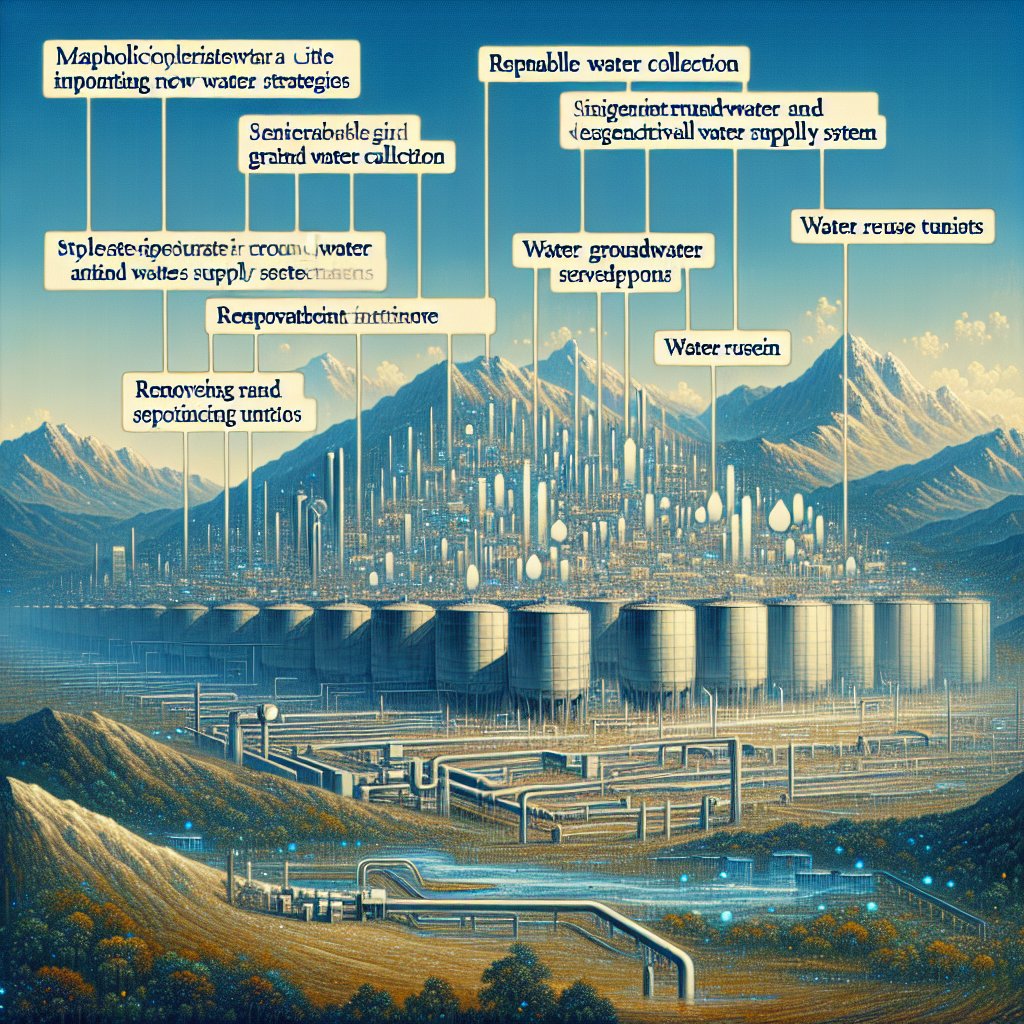Image created by AI
Cape Town's Water Security: City Gears Towards Diversification Amid Climate Change
The City of Cape Town’s Water Outlook Report for March 2024, presented by the Water and Sanitation Directorate, paints a compelling case for the expedited implementation of the New Water Programme (NWP). Designed to broaden the mixture of Cape Town's water supply, the NWP emerges as a solution against the potent challenges posed by climate change, burgeoning populations, and evolving water needs.
A keynote of the eleventh edition of the report is the exhaustive strain on traditional water reserves. Councillor Zahid Badroodien, Member of the City’s Mayoral Committee for Water and Sanitation, emphasized the vulnerability of the city's primary source - the Western Cape Water Supply System (WCWSS), reliant on six prominent dams. The fluctuations in rainfall patterns, as seen during the 2022/23 period where unexpected storm events disrupted standard seasonal forecasts, signals the unreliability of historical water provision models.
With the looming prospect of a drier future and the uncertain impact of climate variability, the report underscores the escalating risks - from heightened evaporation rates to increased fire hazards and intensified rainfall causing flooding. Such unpredictable shifts necessitate a conservative yet proactive water management strategy, leveraging early intervention measures to mitigate potential water crises.
Key actions identified include maintaining and upgrading existing water infrastructure, marked by the city’s commitment to an Infrastructure Stability Program. This includes the restoration of pivotal pipelines, rejuvenation of water treatment facilities, and enhancement of the bulk water supply system’s robustness. Outlined to demand an approximate R2-billion investment over a decade, the comprehensive program aligns with addressing backlogs and ensuring longevity in Cape Town’s water supply.
The city’s ambitious NWP is central to these efforts, aiming to generate an appreciable 300-million litres per day from varied sources by 2030. Innovative measures such as purified water reuse could contribute up to 100-million litres a day, while advanced desalination processes promise up to 70-million litres a day. Moreover, the tackling of invasive plant species and the utilization of groundwater resources through boreholes and springs are projected to significantly bolster the city's water yield.
These initiatives reflect a paradigm shift towards sustainable water management, highlighting the criticality of an adaptable, multifaceted approach in safeguarding Cape Town’s water security against the unpredictable backdrop of climate change.










